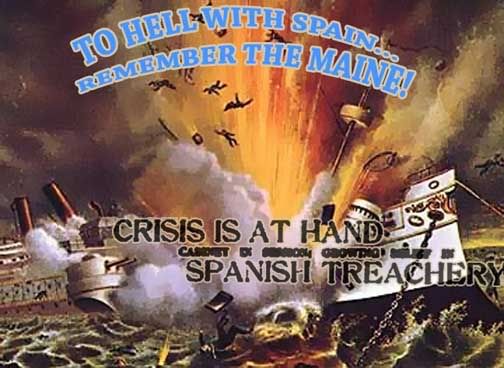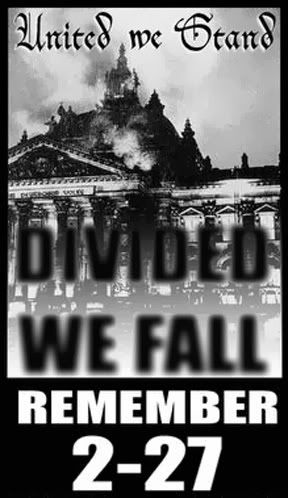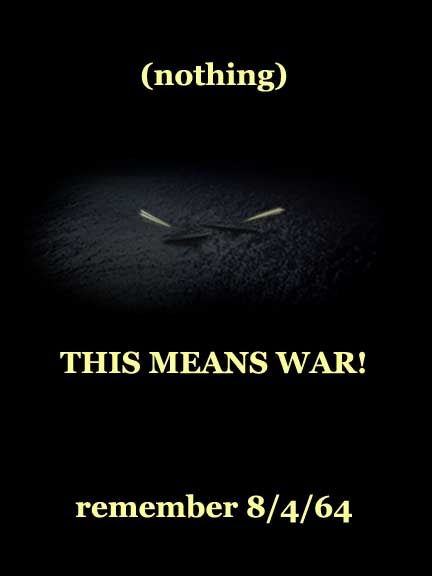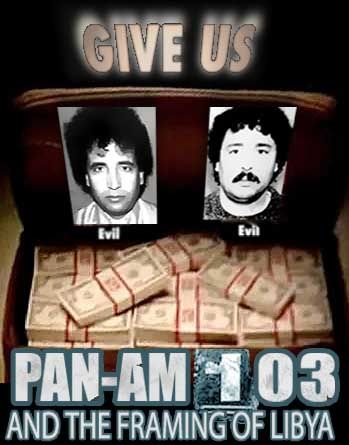[Pan Am 103 Series]
Adam Larson / Caustic Logic
November 22 2009
The following is the first online posting of the full testimony, before the special Scottish Court at Camp Zeist , Netherlands, of Frankfurt Airport employee Bogomira Erac. Her importance to the Lockerbie investigation was previously explained in another post. This somewhat short discussion is extracted from Day 47 (of 86 days) of the full digital transcripts I just received copies of. Transcripts: Day 47, 30 August 2000, pages 6659-6671 (re-formatted with page numbers marking page breaks)
6659
MR. TURNBULL: The next witness, My Lords, is number 787 on the list, Bogomira Erac, who will give evidence in German.
THE MACER: Witness number 787 on the Crown list, Your Lordship, Bogomira Erac.
WITNESS: BOGOMIRA ERAC, sworn
LORD SUTHERLAND: Advocate Depute.
EXAMINATION IN CHIEF BY MR. TURNBULL:
Q Are you Bogomira Erac?
A Yes.
Q And do you live in Germany?
A Yes.
Q What age are you?
A 57.
Q Where were you born, please?
A In Crnomelj, Slovenia, in ex-Yugoslavia.
Q And did you live there for some time before living in Germany?
A I lived in Slovenia until '66.
Q Thank you. Do you now work at Frankfurt Airport?
A Since the 1st of January 2000, I am no longer working at Frankfurt Airport.
Q When did you begin working at Frankfurt
6660
Airport?
A On the 1st of May 1974 I started to work for a firm, and then in '75, I started to work for the Frankfurt Airport directly.
Q When you worked -- I'm sorry, was the firm you mentioned called ISI?
A Yes. The first firm was ISI from Berlin, and the one which I now work for is the FAG, Frankfurt.
Q What was your job when you worked with ISI at Frankfurt?
A I was a programmer when I worked for ISI. I also did some operating. And when I started out with FAG, I started out as a programmer, and later I did operating.
Q Did the firm ISI develop the software that was used to control the baggage conveyancing system at Frankfurt Airport?
A Yes.
Q So from your first involvement with Frankfurt Airport, have you worked with the baggage
6661
conveyancing system?
A Yes.
Q And were you working at Frankfurt Airport in December of 1988?
A Yes.
Q And did you work as an operator in the computer system at that time?
A Yes. Yes.
Q Was that the same department as Kurt Berg?
A Yes.
Q Was he your supervisor?
A Yes, he was my supervisor.
Q In December of 1988, was it possible to ask the computer to print out information about the baggage sent to a particular flight?
A Could you please repeat the question once again?
Q Was it possible to ask the computer to print out details of the baggage sent to an outgoing flight?
A Yes, that was possible.
Q And for how long would that information be kept in the computer?
A The information was kept in the computer
6662
for a few days; however, for various appraisal processes, we copied the data onto two boards. We switched between one and the other.
Q All right. Were you working in the computer department on the 21st of December of 1988?
A Yes, I was on the late shift.
Q And what time did you finish?
A Officially, we stopped at 22.00 hours, but we finished around about a quarter of an hour earlier, and so we were allowed to leave earlier, if we had finished our work earlier.
Q When did you hear about the crash of flight 103?
A I heard about it in my car when I was driving away from the airport.
Q And did you realise that that was a flight that had been handled during your shift?
A On the news it said the plane came from Frankfurt, and actually, I didn't know anything further about it. I thought it was a direct flight. I didn't know anything more than that.
Q And did you think that it had been one of the flights that had been dealt with during your shift?
A I was sure about that time, the
6663
afternoon we had dealt with all of the planes which were leaving Frankfurt in the afternoon.
Q Were you working the next day?
A Yes, I was doing the late shift the next day as well.
Q And did people at the airport speak about the crash?
A Yes, we talked a lot about this crash. In fact, that was virtually all that people talked about.
Q Did you decide to do something with the computer?
A Well, actually, it was quite late on. We've got -- we had a television in our unit. It's the news, I saw the images.
Q And did you then decide to make an inquiry in the computer system?
A Well, I was actually curious about that flight. A day earlier there had not been any problems, so I was interested to see how much luggage there had been. And so it was really because I was curious that I made a printout.
Q What did you make a printout of?
A I've got a KIK computer, and I made a
6664
printout of the plane from the day before, on the 21st of December.
Q Would you look at the screen with me, to Production 1060, image 1, please. Can we magnify to the top, please. Thank you. Do you recognise this document, Mrs. Erac?
A One moment, please. I've got to put my spectacles on.
Q Can we see the flight number?
A Yes. Yes, you can see the flight number.
Q And is it flight Pan Am 103?
A Yes, it's flight Pan Am 103, 1988, from December 21st was the date. It indicates the counter where the luggage for Pan Am 103 was checked in.
Q And is this the information that you asked the computer to print out?
A Yes, that's the information I wanted about the luggage which went through the luggage transportation system for that flight.
Q What did you do with the computer printout?
A Well, I took a look at it, and I was really surprised that so few pieces of luggage had been checked in whilst there were so many passengers on
6665
board. Generally, at that time of the year -- at that time, anyway -- Americans had much more luggage. I took a look to see whether all of the items of luggage came out of the system, the ones that had been checked in, and whether they were on time. And I saw that as far as the computer was concerned, nothing remained in Frankfurt.
Q Did you realise at the time that the Frankfurt flight had connected with a larger aircraft in London?
A No, I only found out about that later on.
Q All right. So once you had finished looking at the computer printout, did you give it to anyone?
A No. No. I didn't see anything problematic.
Q What did you do with the computer printout, then?
A No one instructed me to make this computer printout. I just did it for myself because I was curious about the way in which the flight had been dispatched, so I took a look at it, and then I kept it as a souvenir, one might say. I hung it up in my cupboard.
6666
Q Were you due to take some holiday leave about this time?
A A few days later, I went to Slovenia. That was what I did every year; I went to Slovenia for the New Year.
Q Do you recollect when you returned to Frankfurt?
A I think it would have been around about the 15th of January, perhaps one day before that.
Q Did there come a stage when you told Mr. Berg that you had the printout?
A That was around a week later. When I went to Frankfurt again, I was on the early shift. It was sometime between the 20th and the 25th of January.
Q Thank you. Did you give the printout to Mr. Berg at that time?
A Yes, I gave Mr. Berg this printout, because I'd realised that there was actually no other documentation available.
Q Did he ask you to check the computer at that stage to see if there was any more information available?
A In the computer -- well, there was -- the data was there for one week, and after that they were written over. Mr. Berg just asked me to take a
6667
look in the archive in order to see whether there were teletype printouts. These were the things which came automatically from the computer. But I couldn't find anything.
Q Would there be any record of the baggage sent to flight 103 if you hadn't made this printout?
A Not so far as I know.
Q Thank you.
LORD SUTHERLAND: Mr. Taylor.
MR. TAYLOR: I think Mr. Davidson is leading on this issue, My Lord, but I have no questions.
LORD SUTHERLAND: Mr. Davidson.
MR. BURNS: I have a number of questions, My Lord.
LORD SUTHERLAND: Very well, Mr. Burns.
CROSS-EXAMINATION BY MR. BURNS:
Q Mrs. Erac, can I ask you, please, something about the procedure in relation to the computers.
A Yes, go ahead.
Q In 1988, am I right in thinking that at the beginning of each day the baggage conveyancing system computers needed to be switched on?
A The computers were all switched on. We didn't switch them off at all, but every day we started
6668
anew, working with the standardized state, so that was with the baggage -- I believe it was a KIK computer where the data were stored. They were stored in that computer for a few days, and it would be possible then to copy the data onto disks.
Q All right. What I really am interested in knowing is whether, at the beginning of each day, the time needed to be entered into the computer system.
A Yes, at the start, the date and the time had to be put into the computer.
Q And the time would be taken, would it, from the person's watch, or an office clerk, at the time when the time was entered into the computer?
A I'm afraid I haven't quite understood what you mean with this question. Could you please repeat the question?
Q Where would the operator get the time which was entered into the computer at the stage we are talking about?
A You get the time from the main clock in the computer, or from one's own watch, or from another clock.
Q Now, during the course of the day, would the time that the computer showed start to deviate from the time that the clock showed, for instance?
6669
A Yes, that's correct, but it's a physical phenomenon. Computer time, after about 4.00 or 5.00 in the afternoon, one would note differences of two or three minutes, let's say. It's a physical phenomenon. We were aware of this. It's because of the frequencies.
Q All right. So because of the electrical frequencies that powered the computer --
A Yes.
Q -- the computer time would deviate from other times shown on, for instance, clocks or watches; is that the position?
A Yes, there were small deviations.
Q Do you know whether the power company had been -- by December 1988 had been contacted about these problems in the power -- in the electrical frequencies?
A Well, I wasn't actually in charge of that. I didn't deal with the hardware side of things. I don't know whether they had been contacted.
Q Could the deviation between computer and clock time increase beyond three minutes?
A Well, you have to know which time you are referring to; not in such general terms, but at what time are you referring to?
6670
Q Well, you've told us that by 4.00 or 5.00, the time difference would be two or three minutes. What I am interested to know is whetherit's -- the difference ever became more than three minutes.
A Well, I didn't really pay much attention to these differentials, because I was in charge of the luggage side of things for the software, not of the hardware.
Q Thank you very much indeed.
LORD SUTHERLAND: Mr. Davidson.
MR. DAVIDSON: No questions, My Lord.
LORD SUTHERLAND: Advocate Depute.
RE-EXAMINATION BY MR. TURNBULL:
Q Can I ask you one more thing, please,
Mrs. Erac. Whose job was it to set the time on the computer in the morning?
A Well, it was the operators when we started the computers.
Q Did you sometimes do it?
A Yes, almost every morning, either my colleague or myself.
Q When you were doing it, where did you get the time to enter into the computer?
A Well, from the clock in the computer, or
6671
sometimes from my watch. But that was identical, really. I presume, anyway.
Q Was there another computer, then, apart
from the one that you were setting the time for?
A Well, I'd like to know exactly what computer you are referring to when you refer to this other computer.
Q You mentioned, I think, getting the time from the clock in the main computer; is that correct?
A Well, in the central computer we entered the time, and the central computer then transmitted the time to the KIK computer, or the other computers.
Q I see. Thank you.
LORD SUTHERLAND: Thank you, Mrs. Erac. That's all.













No comments:
Post a Comment